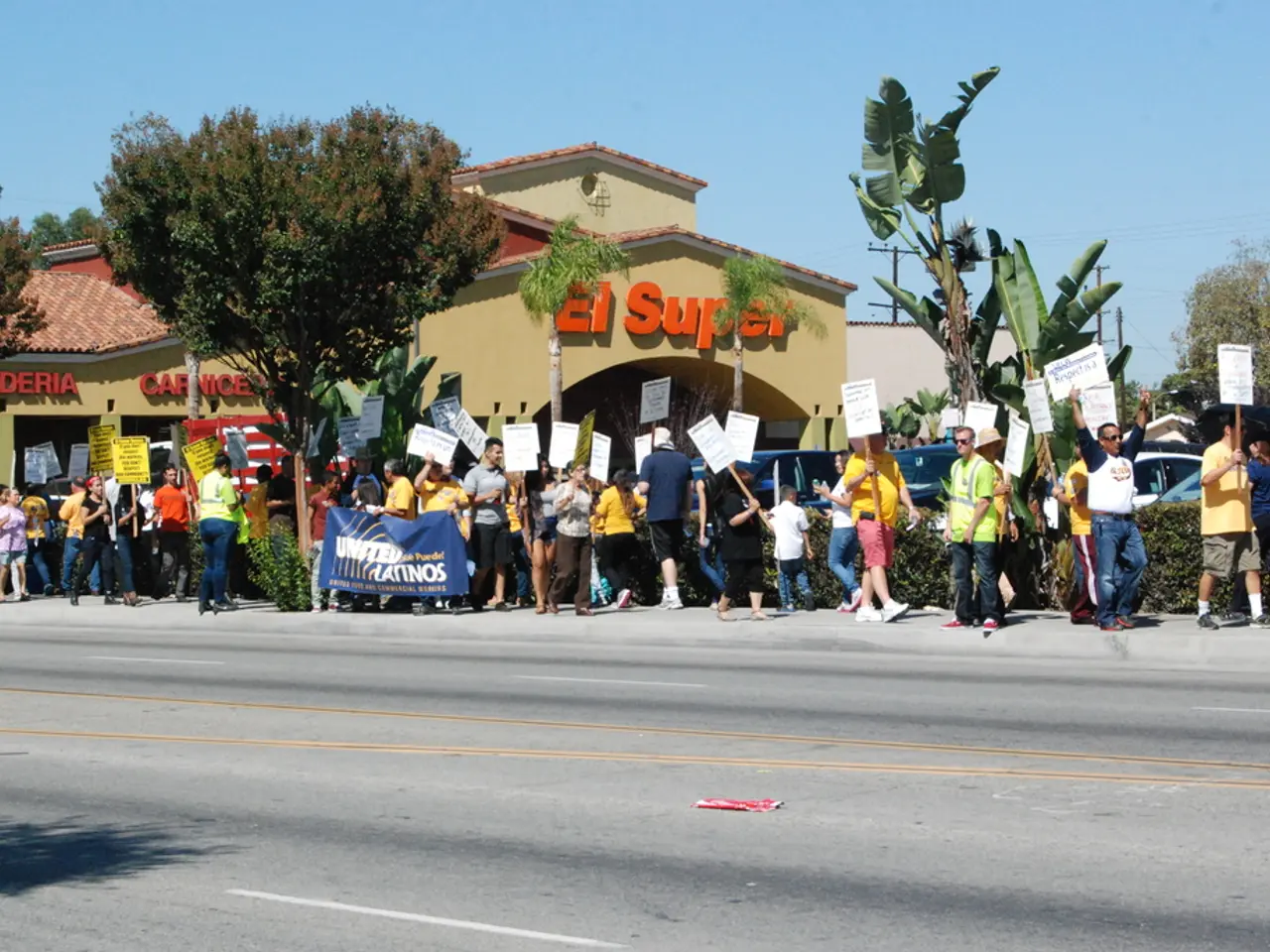Election monitoring body in Georgia raises doubts about impartiality, opting out of overseeing the 2025 elections
In the heart of the Caucasus region, Georgia is gearing up for its municipal elections on 4 October 2025. However, the political landscape is far from stable. The International Society for Fair Elections and Democracy (ISFED), a prominent election observation organisation with 30 years of experience, will not be present at these elections.
Founded four years after Georgia regained its independence, ISFED has made a significant contribution to ensuring fair elections, most notably uncovering fraud in the 2003 parliamentary elections. Their absence this time around is a cause for concern.
The report from ISFED indicates that Georgia is heading into the municipal elections amid a political crisis, democratic backsliding, and a deteriorating human rights situation. The political situation, legislative framework, electoral system, and media environment have all worsened since the disputed 2024 parliamentary elections.
New legislative changes target civil society and foreign grants, restricting the rights of observers. As a result, opportunities for election observation have been severely limited. ISFED's election observation mechanism has become a target of government control and pressure, significantly limiting procedural guarantees for democratic elections.
The OSCE/ODIHR mission, which had monitored Georgia's elections for many years, decided to stop observing future elections in Georgia. The organisation cited concerns over interference by the ruling Georgian Dream party and the lack of independence of electoral institutions as reasons for their decision.
The report also mentions the controversial parallel vote tabulation, a method used by ISFED to cross-check the official results with a sample of votes. Tensions between Georgian Dream and ISFED escalated after the 2020 parliamentary elections, particularly over this controversy. Despite ISFED's acknowledgment of an error, pro-government media continue to accuse the organisation of 'falsifying' the results.
Eight opposition parties have announced a boycott of the municipal vote, citing the disputed 2024 parliamentary elections and major violations. Two major opposition parties - Lelo and For Georgia - have announced plans to participate, arguing that opposition involvement will strengthen the anti-government momentum and prevent Georgian Dream from gaining full control over all state institutions.
However, two smaller parties - Freedom Square and For the People - which joined Lelo in a pre-2024 election coalition, have announced they will not participate in the municipal vote.
Georgian Dream, the ruling party, has adopted repressive legislative changes, intensified pressure on civil society and the media, and launched political persecution against opposition leaders since the disputed elections. The ISFED report states that the three key conditions of the Council of Europe's Venice Commission are largely unmet in Georgia.
As the political situation in Georgia continues to deteriorate, the absence of ISFED and the OSCE/ODIHR mission raises questions about the fairness and legitimacy of the upcoming municipal elections. The elections will be a significant test for Georgia's democracy and its commitment to free and fair elections.
Read also:
- Gathering Celebrating Cultural Variety
- Worsened post-flood disease outbreak in the Philippines due to inadequate infrastructure planning, according to industry experts
- Preparations underway amongst European countries for a prospective age of international chaos
- Trump advocates for the withdrawal of two candidates to create a one-on-one mayoral race between him and Mamdani in New York City








